Safidy: the freedom to choose
Ten years ago, coastal communities in southwest Madagascar challenged marine conservation organisation Blue Ventures to make a bold move into supporting local health service provision…
Ten years ago, coastal communities in southwest Madagascar challenged marine conservation organisation Blue Ventures to make a bold move into supporting local health service provision…
… in response to the unmet family planning needs of people in Velondriake, Madagascar’s first locally managed marine area, Blue Ventures expanded its work to include reproductive health education and services.
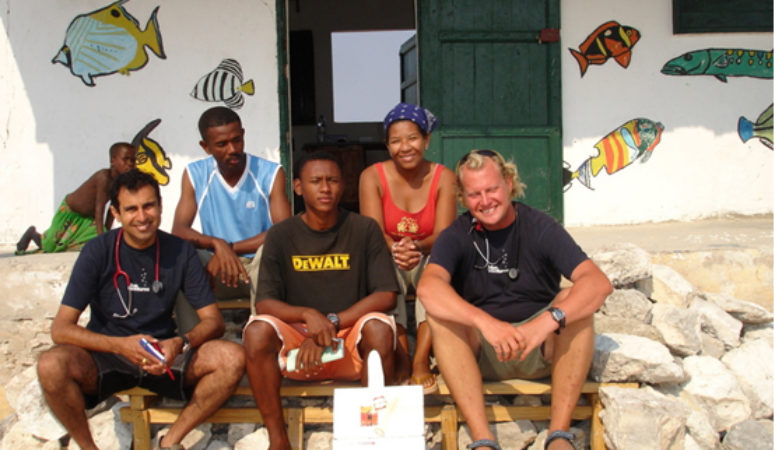
On August 17th 2007, after extensive consultations with community members and local authorities, we held the very first of what was to become a weekly “pop-up” clinic in the village of Andavadoaka, offering family planning information and counselling, and a range of contraceptive options to women and couples.
1 in 5 women of reproductive age from Andavadoaka attended the clinic that first day, confirming that we had indeed unearthed a huge unmet need for family planning, and we haven’t stopped working to address these needs since!
“There was no really recognisable name for family planning among the Vezo when it was time to name the service, but throughout dozens of focus groups and one-on-one interviews, the word for choice was repeated over and over, regardless of gender or age. This was important because even the concept that one had a choice was new, and every consultation began with a discussion about building a plan for how many children a client would ideally want and when. Many of these women had never thought about ideal or hypothetical future scenarios. We were inviting them to think further into their personal futures than they ever had before. The transformations were powerful and the entire community began to appreciate the power of choice – Safidy.”
~ Maggie Flanagan, the first Safidy programme coordinator, Andavadoaka, 2008-2009
In 2009 we started running fortnightly satellite clinics in the villages of Belavenoke and Tampolove to reach more people in the wider Velondriake area, and launched a partnership with Marie Stopes Madagascar to offer long-acting contraceptive options including implants and intra-uterine devices.
Realising that even with outreach clinics there were still so many people without access to family planning services across Velondriake, we started collaborating with Population Services International in 2010 to train local women as community-based distributors of short-acting contraceptive options.
Today, these community health workers don’t only provide family planning services in their villages: they’ve also been trained to offer health information to pregnant and postpartum women, manage common childhood illnesses such as respiratory infections, sell water-purifying solution and insecticide-treated mosquito nets, facilitate small group discussions to support the uptake health-promoting practices such as handwashing with soap and exclusive breastfeeding, and encourage community engagement in marine resource management.
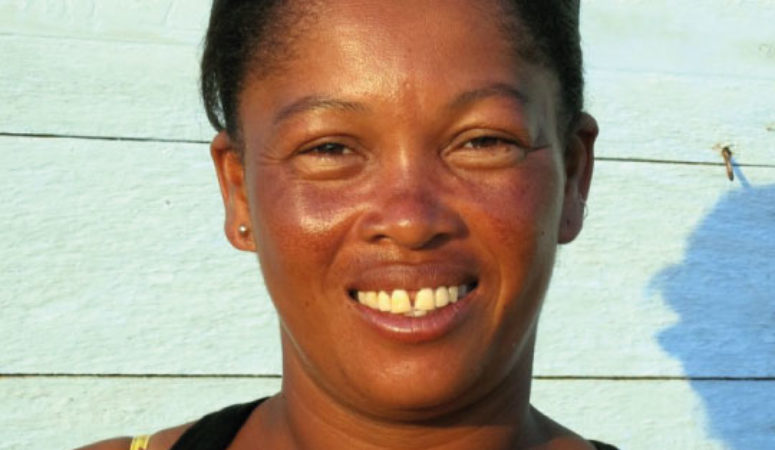
“It’s my passion to be a community health worker, to teach my family and the people in my village about health. We’re so motivated to share our knowledge it’s like we never sleep; we go in the market, we go near the well, we go to people’s houses, and we explain the different family planning options. It’s not just about offering contraceptives, but also giving people information and answering their questions. That’s what makes them really trust us and like coming to us… and they see the value of what we provide, because without health we can do nothing.”
~ Cynthia, community health worker, Andavadoaka
From modest beginnings in the village of Andavadoaka, the Safidy programme now serves over 45,000 people across four of Blue Ventures’ five marine conservation sites: Velondriake (since 2007), Belo sur Mer (since 2013), the Barren Isles (since 2015) and the Ambanja & Ambaro Bays (since 2017), with community health promotion efforts due to launch with partners in the remaining Mahajamba Bay site very shortly.
The proportion of sexually active women of reproductive age in the Velondriake area using contraception has increased more than fivefold since the programme began: from less than 10% to just over 50% as of 2016!
“As soon as I took control of my reproductive health, my business ideas thrived, my confidence grew and I became able to provide for my son. Now I speak to other women in my community about the benefits of making their own family planning choices.”
Irene, family planning user, Tampolove

couple years of protection provided to date across all three sites (1 couple year of protection = 1 year of protection from unintended pregnancy for 1 couple)

unintended pregnancies estimated to have been averted to date among 25,000 people (calculated using Marie Stopes’ Impact 2 tool)
Our integrated health-environment work in action:
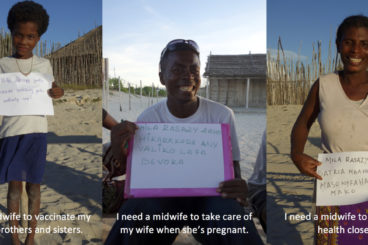
1 fantastic government midwife placed in Andavadoaka following effective community-led advocacy
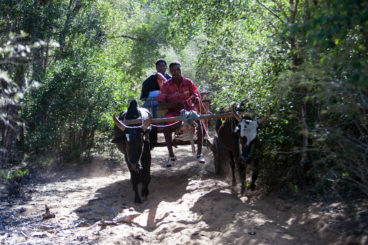
500+ bumpy zebu cart journeys completed for village outreach tours
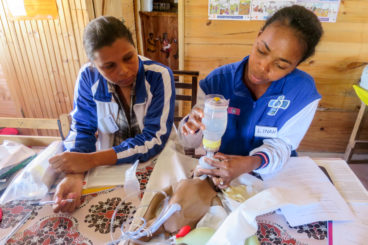
6 government health workers trained in neonatal resuscitation to date
In 2013-14 we were honoured to receive an Excellence in Leadership for Family Planning (EXCELL) award and the St Andrews Prize for the Environment for our integrated health-environment work.
In the decade since Safidy was established, our teams have nurtured strong links with other Blue Ventures programmes ranging from fisheries to aquaculture, and we’ve witnessed encouraging advances in gender equality and in local marine resource management.
Women now constitute 38% of the general assembly governing the Velondriake locally managed marine area, up from just 13% previously.
Since 2014 we’ve been sharing our experiences of this holistic way of working with other environmental and health organisations in Madagascar through the dynamic PHE network, hosting learning exchange visits at our sites and producing technical resources that reflect our decade of work in this area.
And now we’re engaging with like-minded marine conservation organisations far beyond Madagascar – from Mozambique and Tanzania to Indonesia – sharing learning and supporting the creation of similar cross-sector partnerships tailored to these settings.
Watch our medical director Dr Vik Mohan explain how listening to communities has taken us on this unexpected journey into supporting local health service provision alongside marine resource management:
“For ten years our health team have ensured that the communities we work with, some of the most remote and underserved people you’ll find anywhere in the world, have had reliable access to health services. This is testament to the dedication of our team and shows what can be achieved when you work in partnership with communities. To all Blue Ventures staff past and present, to all our funders and friends, and to the communities themselves: thank you for all your support. It’s been an incredible journey!
Dr Vik Mohan, Medical Director
And so what does the future hold now for Safidy in Madagascar?
Over the coming years we’ll be working to increase the autonomy of the community health workers at our sites, integrating with and strengthening the public health system as appropriate, collaborating with new partners to address unmet water and sanitation needs, and exploring how we can support better nutrition through our integrated programming.
Continually building upon our work around family planning, we hope that as communities become more healthy, they will also become more resilient to climate change.
A decade ago we were a nascent marine conservation group that courageously branched out into working on community health with several respected health partners.
Today we’re proud to be a PHE organisation that stands up for the rights of all individuals to choose freely the number and spacing of their births through informed contraceptive choices.
At the Family Planning Summit in London in 2017 we had the privilege of announcing an ambitious commitment to increase access to family planning services for 600,000 people living in geographically hard-to-reach coastal communities by 2020.
We’ve come a long way since that first “pop-up” clinic in Andavadoaka back in 2007 and we hope that you’ll join us for the next decade of this crucial work.